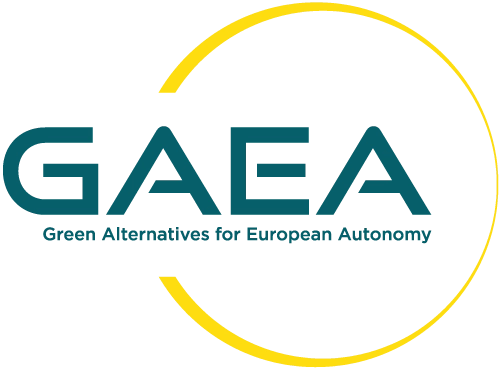Welcome to the “Recycling and material chain optimisation for End-of-Life products” thematic category within the GAEA (Green Alternatives for European Autonomy) Open Innovation Program!
The Thematic Category of “Recycling and Material Chain Optimization for End-of-Life Products” addresses a critical and growing need in our approach to sustainable development. This Innovation Area focuses on leveraging technologies and solutions that enable efficient materials supply from secondary sources and effective recycling strategies.
The modern world faces an unprecedented challenge in managing the lifecycle of products, particularly as we reach the end stage of their usability. The traditional linear economy model—take, make, dispose—has led to significant environmental and resource sustainability issues. In response, this thematic category aims to revolutionize the way we view and handle end-of-life products, shifting towards a more circular economy where waste is minimized, and resources are reused or recycled.
The emphasis is on developing and implementing technologies that facilitate the extraction and processing of valuable materials from products that have reached their end of life. This not only includes consumer electronics and plastics but also extends to more complex products like batteries, vehicles, and industrial machinery. The goal is to create optimized material chains where every end-of-life product is viewed as a valuable resource rather than waste.
By focusing on secondary sources for materials, we reduce reliance on virgin Raw Materials, thereby lessening the environmental impact associated with Raw Material extraction and processing. This approach demands innovations in recycling technologies—making them more efficient, cost-effective, and capable of handling a wide range of materials. It also requires a holistic view of product design, encouraging the development of products that are easier to disassemble and recycle.
Through this innovation area, GAEA aims to inspire and support solutions that contribute to a more sustainable future, addressing the entire lifecycle of products. This is not just an environmental imperative but also an economic one, as resource efficiency can lead to new business opportunities and a more resilient supply chain.
This Innovation Area is addressed to:
- Individuals from Business, Finance, Marketing, Technology, and Engineering academic sectors studying or recently completed their studies (up to four years) in any European University
- Researchers and/or Ph.D. students in any relevant to the Innovation Areas science fields from any European University
who have or want to develop an innovative idea for Recycling and material chain optimisation for End-of-Life products.
